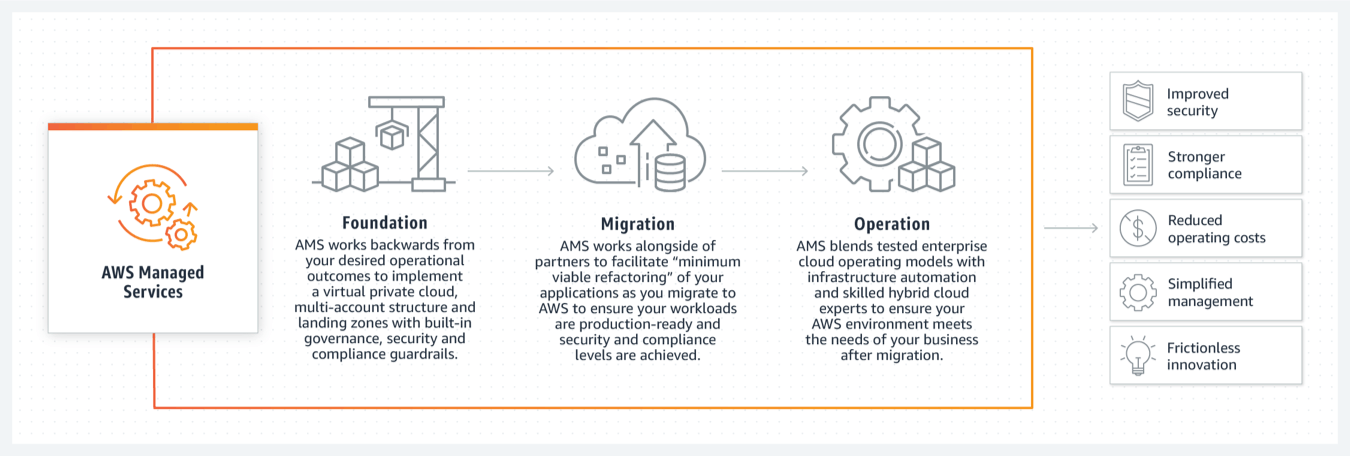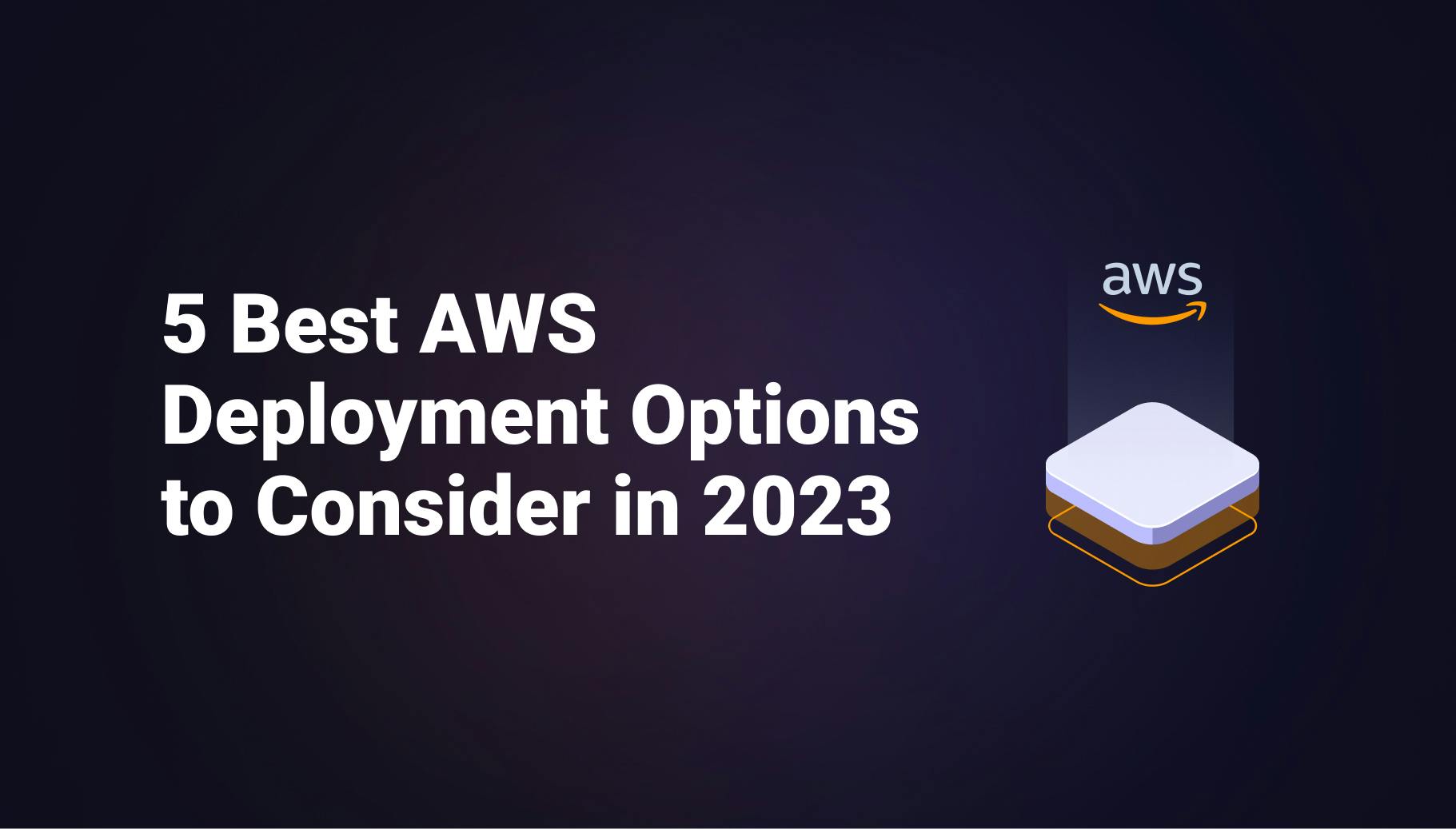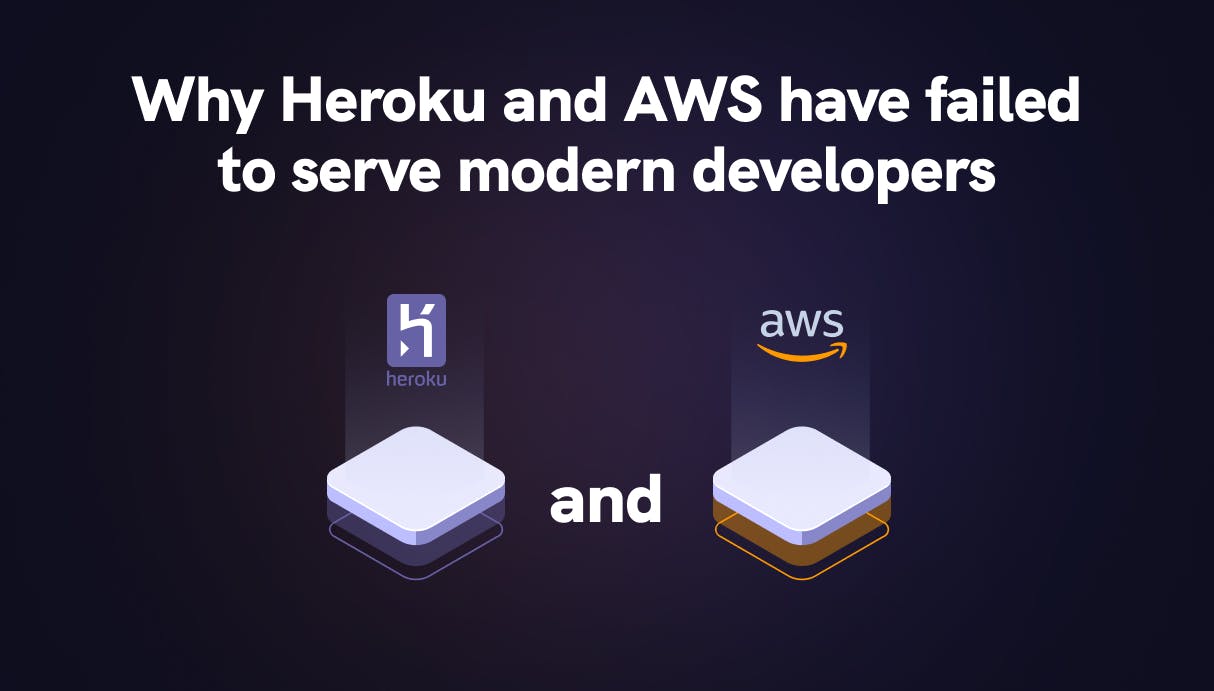Should Your Startup Use AWS Managed Services?
Let’s face it. Gaining a competitive advantage in the target market is expensive. Even if you have a good idea and its execution plan in mind, operations related to management, storage, networking, service provisioning, security, and application management will cost you a fortune. To say the least, a cutting-edge IT infrastructure, a reliable team, and a strategy for rapid product releases or expansion/scaling is a must for your product’s success.
As a startup, going forward with rolling or building your own solution could prove to be tiring and much over the budget. It will eat up your team's time in the building, rebuilding, scaling, refactoring, following security measures, and whatnot.
Assuming that you are developing a solution with the wish to succeed, your initial product or MVP needs to be altered frequently too. In such a scenario, AWS Managed Services can simplify your life.
Read what it is, what are its pros and cons, and how to reach the final verdict between whether to release your own solution or go ahead with AWS Managed Services.

Morgan Perry
March 16, 2022 · 6 min read.jpg?ixlib=gatsbyFP&auto=compress%2Cformat&fit=max)
#AWS Managed Services - A Quick Overview
AWS managed service is a cloud-enabled offering that lets you use a remote infrastructure to host and run your applications. Besides saving you money, time & resources, it can improve and speed up your operations.
As it is managed, updated, and maintained by industry experts, startups can be stay relieved from many IT operations. It will keep your team free from most of the application management operations, improving your productivity multifold.

#Pros and Cons of AWS Managed Services
To figure out if a self-managed solution is right for you or a managed one, let’s analyze the positive and negative sides of the latter (i.e., AWS managed service) first.
#The Pros
Resource Optimization
Releasing a new feature or upgrading your infrastructure's capability in a self-managed environment is a big deal. Improving the scaling efficiency of your environment will require adding more resources to the infrastructure, increasing the total cost of ownership as a result.
AWS Managed Services, on the other hand, use the shared responsibility model. As it lets you pay-as-you-go, you need not hold resources for future upscaling. Instead, you will just need to pay a little bit extra to gain access to more storage or resources as your business expands.
Besides, you can do rapid development and release updates of your software faster while using AWS cloud solutions and managed services together.
Flat Spending - Predictable Amount
Self-managed infrastructure demands unpredictable costs very often. Be it a recovery process or a new need for scaling/performance improvement, every operation is very costly. Then, it also needs a good number of working hours from your in-house or contract-based resources.
AWS Managed Services have most of the services available at fixed prices. Significant changes over time may attract little costs, but the amount will not be as high as in the case of self-managed infrastructure. Moreover, for every month or year, you will have a clear idea of how much money needs to be spent on it.
Reliability
With Managed AWS services, you get quick services from Amazon experts whenever there is an error or problem with your implementation. This implies the service provider is reliable when it comes to application hosting and management.
Availability of the highest Order
For the applications that need to be up all the time, self-managed solutions are not the right choice - unless you have your data centers available in multiple locations and there is a big team working on troubleshooting the problems all the time. So, you must go for managed services.
With AWS services, you can stay assured about the high availability of your application. It uses multiple provisions that your solution is always available for your end-users.
#The Cons
Poor Level of Customization
For a highly-customized tech stack or the requirements like sending more emails than allowed, etc., AWS managed might not be a good choice. If your business has such unique requirements, you will need to roll your own solution with a well-customized configuration and deployments. It makes more sense here.
Lack of control
As you get the infrastructure as a service with AWS Managed services, your control over the development or deployment environment might be limited. So, you may not be able to use your deployment as you want. If that’s the case, an external service provider should be avoided.
Lock-in / portability
When you have plans to move your application across service providers and platforms, AWS Managed services might not give you that level of portability. To overcome this issue, you may use another Amazon service, i.e., EKS managed service, that offers Kubernetes-based containers to increase your app's portability. However, it will add complexity and cost for you.
#Key Considerations When Choosing AWS Managed Services Vs. Implement your Own Solution
#Skills and Expertise
Depending upon whether you want to go for Monolithic, microservices, or AWS environment deployment, your startup will need different expertise.
Though the process is a bit complex, there are a few good tools like Qovery to simplify the process. In comparison to implementing your own solution, it is nothing. In the latter case, you will need to hire and keep specialized experts to work on your infrastructure dedicatedly.
#Ops Work & Resources
Operational complexity and the need for resources are low when you go ahead with AWS because most of the part is managed by the third-party service provider. With it, you can innovate, develop and release faster.
Implementing your own solution as a startup could be time-consuming and resource-exhaustive. It will keep your employees busy in operations and halt essential work.
#Time to Market
Releases and application development cycle management are faster and easier with AWS Managed Services. Be it time-to-market for the first time or the later bug fixes/upgrades, AWS is more efficient.
#Start and Scale Costs
Initial as well as scaling costs for implementing your own solution are high. It is because you are the only consumer for the configured architecture. However, as AWS Managed Services utilizes a shared-responsibility model and ensures optimal use of resources, start and scale costs are also optimized in their case.
#Stack Complexity
With the increasing stack complexity for your product, you will need a bigger team to manage it in the case you have rolled your own solution. However, a more feasible way is to take a few more software, technologies, risk mitigation implementations on board with you through AWS Managed offerings.
#Infrastructure Cost
Infrastructure costs, over time, are uniform and predictable for the AWS implementation.
For your own deployment, this graph will go steep in the beginning and whenever a change/scaling is needed. Otherwise, it will be uniform.
Taking everything related to infrastructure expenditure in mind, AWS is a convenient and yet efficient pick.
#Security and compliance
Security is among the utmost cruciality, and with a self-owned service, it will cost you very high. As you are a startup, it might add a lot of burden on you, financially as well as operationally. By opting for AWS, you can inherit their standard security implementation and take the help of their security engineers whenever needed. It is better this way.
#Conclusion
As visible from the above analysis, implementing your own solution is a costly and avoidable choice for a startup until you want extreme transparency, customization capabilities, and control over your IT infrastructure. The initial phase of your organization, when you have limited resources, is not the time to stay busy in operations, after all.
As a growing startup, you must focus on reducing your time-to-market, shipping features as (and when) your end-users demand, deploying better security standards, and keeping your customers satisfied.
We understand that even if feasible and efficient, AWS Managed Services could be complex for you. It may require a steep learning curve when you are devoid of time. But, there obviously is a better idea than going the hard way, i.e., rolling their own solution.
While AWS provides various solutions for managing Docker containers, using a modern solution like Qovery is more accessible without any mandatory knowledge needed on DevOps/AWS. It simplifies infrastructure management and deploys apps on AWS easily. Discover Qovery today!
Your Favorite DevOps Automation Platform
Qovery is a DevOps Automation Platform Helping 200+ Organizations To Ship Faster and Eliminate DevOps Hiring Needs
Try it out now!

Your Favorite DevOps Automation Platform
Qovery is a DevOps Automation Platform Helping 200+ Organizations To Ship Faster and Eliminate DevOps Hiring Needs
Try it out now!

